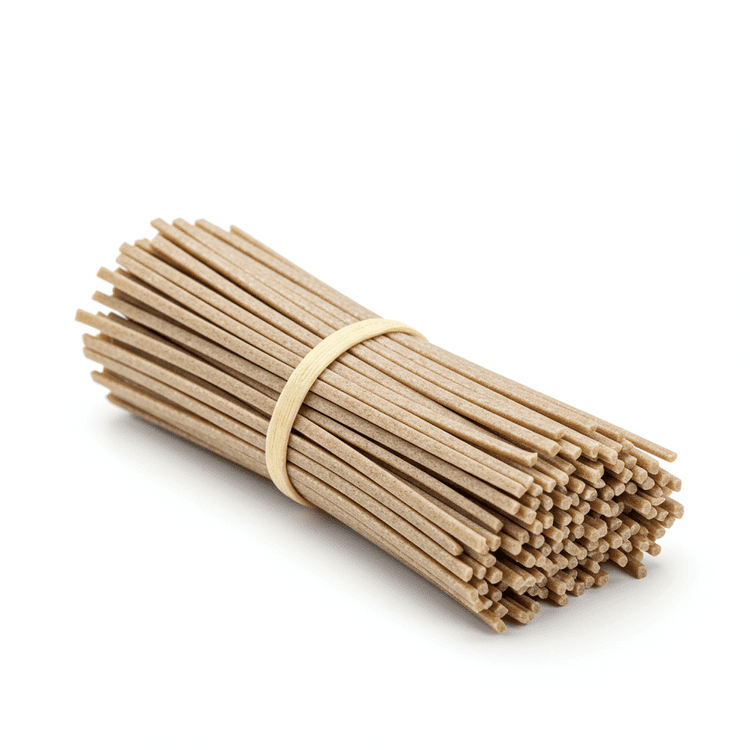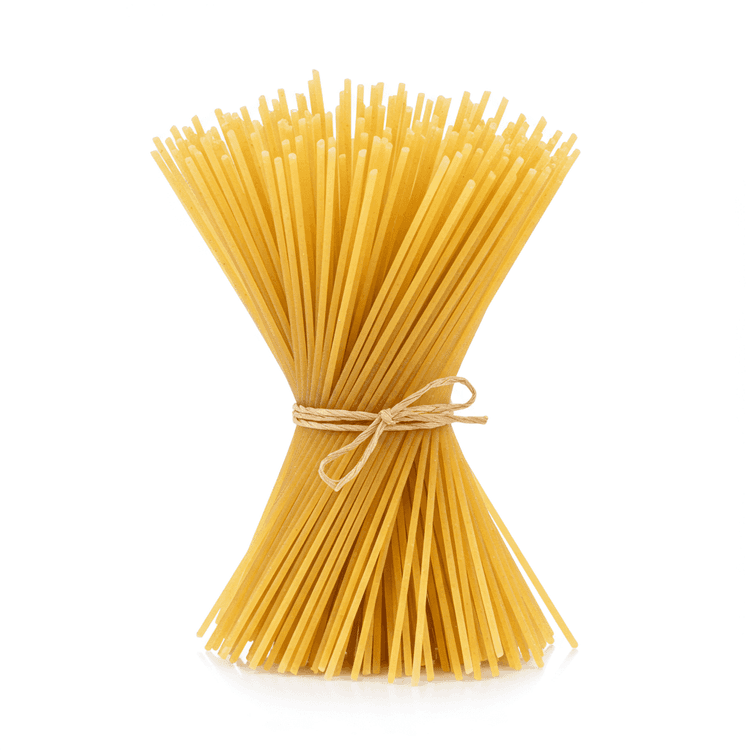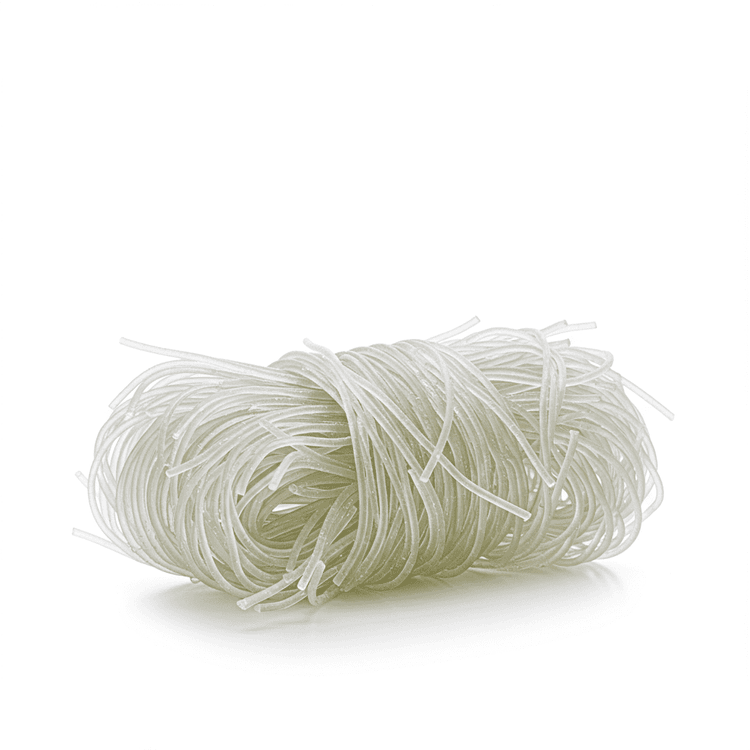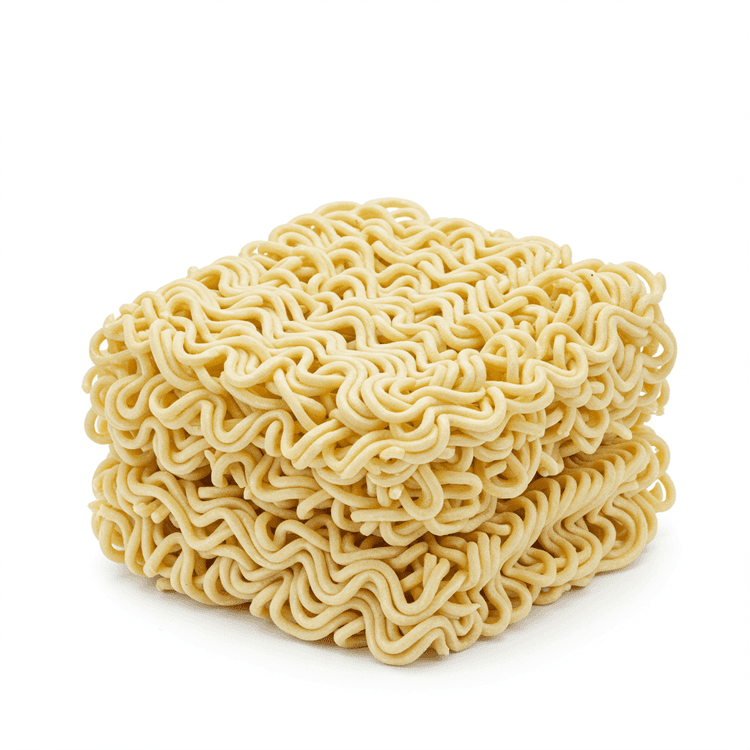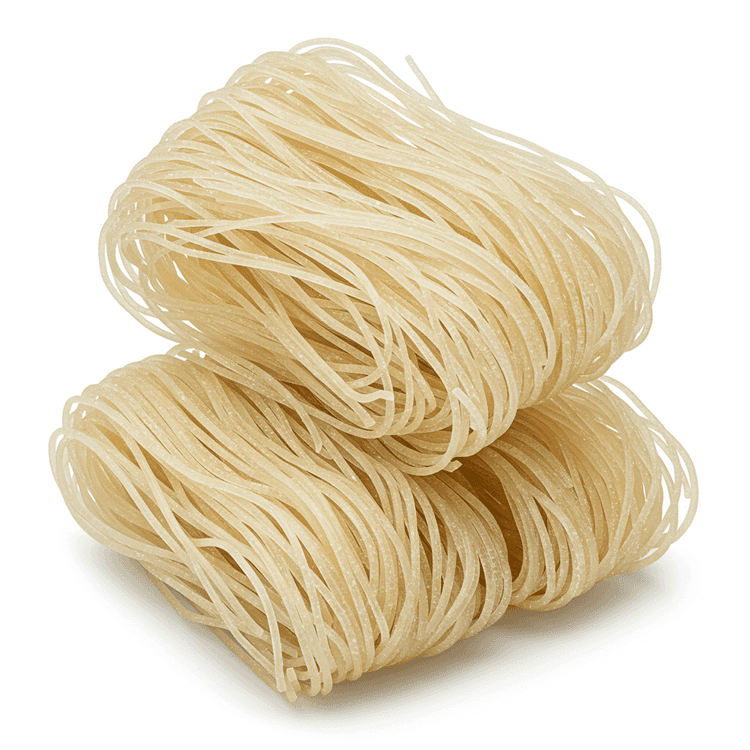
Dried Rice Noodles
Dried rice noodles are a versatile pantry staple, prized for their delicate flavor and satisfying chewiness. These thin, translucent noodles, made from rice flour and water, come in various widths, from vermicelli-thin to wider flat ribbons. They have a neutral taste, making them ideal for absorbing the flavors of sauces and broths. When cooked, dried rice noodles transform from brittle and rigid to soft and pliable, offering a delightful textural contrast in dishes. Perfect for stir-fries, soups, salads, and spring rolls, dried rice noodles are a gluten-free alternative to wheat-based noodles.
Common Uses
- For a quick and easy stir-fry, soak dried rice noodles in hot water until pliable, then toss them with your favorite vegetables, protein, and a flavorful sauce like soy sauce, sesame oil, and ginger. - Add dried rice noodles to a simmering broth to create a comforting and gluten-free noodle soup. Soak them separately before adding to prevent the broth from becoming too starchy. - Use rehydrated rice noodles as a base for refreshing cold noodle salads. Combine them with shredded vegetables, herbs, and a light vinaigrette or peanut sauce. - Incorporate cooked and cooled rice noodles into fresh spring rolls. The delicate noodles add texture and substance to the rolls along with shrimp, herbs, and vegetables. - Fried crispy rice noodles can be used as a garnish or added to salads to provide a satisfying crunch. Briefly deep-fry them until golden brown and puffed up. - Ground dried rice noodles can also be used as a gluten free thickener for gravies and sauces.
Health Benefits
- Provides a gluten-free carbohydrate source for energy.
- Offers essential amino acids for muscle repair and growth.
- Low in fat and cholesterol, contributing to heart health.
- Contains iron for red blood cell production and energy levels.
- Can be a source of B vitamins for nerve function and metabolism.
- Easier to digest compared to some wheat-based noodles for sensitive individuals.
Substitutes
Chefadora AI is here.
Experience smarter, stress-free cooking.
Storage Tips
Dried rice noodles should be stored in a cool, dry, and dark place, such as a pantry or cupboard. Ensure the package is tightly sealed after opening to prevent moisture absorption, which can lead to spoilage or a change in texture. Properly stored dried rice noodles can last for several years, but it's best to use them within two years for optimal quality and flavor. Avoid storing them in areas with high humidity or near strong-smelling foods, as they can absorb odors.
Marnirni-apinthi Building, Lot Fourteen,
North Terrace, Adelaide, South Australia, 5000
Australia
